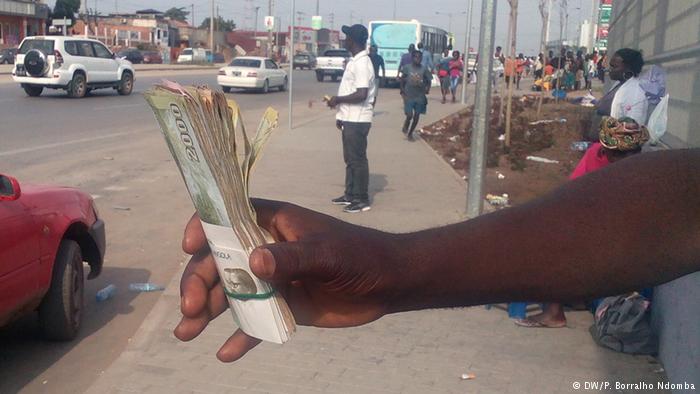For Sylvie Nantcha it is vital that she sends money to her mother in Cameroon every month. “In our country there is no social welfare and no medical insurance”, she told DW.
Nantcha has been living in Germany for 24 years, but the connection to her family remains strong. “Children feel responsible for their parents,” she said, “The children at home help their parents, but when someone lives abroad, the responsibility becomes greater.”
Most African migrants in Germany do the same. Nantcha is the chairperson of The African Network of Germany and has consulted with almost 1000 members. 90 percent admitted they regularly transfer money to their countries of origin. According to Germany’s Federal Ministry for Economic Cooperation and Development (BMZ), approximately 1.2 million euros are transferred annually to Africa. German development aid for Africa is only slightly ahead at around 1.5 million euros.
Development aid is not enough
The reality is that without money from relatives in Europe, many Africans would not be able to make ends meet.
“The money is intended to cater for the daily lives of people. So that siblings, nieces and cousins could go to school and that parents can afford a visit to the doctor,” said Nantcha. According to her research, many would also prefer to spend the money differently. 99 percent of the interviewees know of relatives, neighbors or friends, who would like to start a business. 97 percent are in a position to support one or more small businesses. Nantcha thinks this is a good idea; “It would be better to support the people on the ground to work on getting their own income, rather than constantly sending them money.”
This is what the BMZ is hoping to achieve and they are under increasing pressure to act. In the wake of Germany’s G20 presidency this year, its policy-makers are aiming to send more financial resources to Africa. From the ministry’s point of view it is not enough to just increase development aid.
“The requirements are quite huge to be covered by tax money from the public,” said Parliamentary State Secretary Thomas Silberhorn during BMZ’s ‘Africa Day’, “We need more resources and we need additional stakeholders.”
The BMZ is also encouraging the private industry to invest more in Africa by linking private money transfers to state-run development aid. “If we find our way around private money transactions, we would wish to better contribute to the building up of the local economy,” Silberhorn said.
Money transfers a “burden” to some
If all goes to plan, the first transfers could begin in 2018. Kenyan-born entrepreneur Njeri Kinyanjui is now based in southern Germany and already has some ideas as to how development aid and return remittance could be linked, such as through vocational training.
“If I were to support a carpenter who owns a workshop, it would be good if this person had an opportunity to advance in their field. Many people have jobs they acquired by learning by doing.”
At the same time she is cautious over being too enthusiastic. Many Africans are willing to support their relatives in starting small businesses. But this still does not always result in the desired prosperity.
“The woman who sells vegetables in her small shop has to spend her income on healthcare and school fees for her children,” said Kinyanjui, “She cannot afford to expand her business. So one becomes trapped in a cycle.”
Kinyanjui gladly supports the needy in Kenya. But she cautions that for many migrants, money transfers are a “heavy burden.”
“One has to first earn something, before they can send money back,” she said. This is difficult for Africans who do not already have well-paid jobs. So Kinyanjui is open to accepting support from the German government. But she believes that whoever transfers money to their home country should also be able to save on taxes in Germany.
DW



